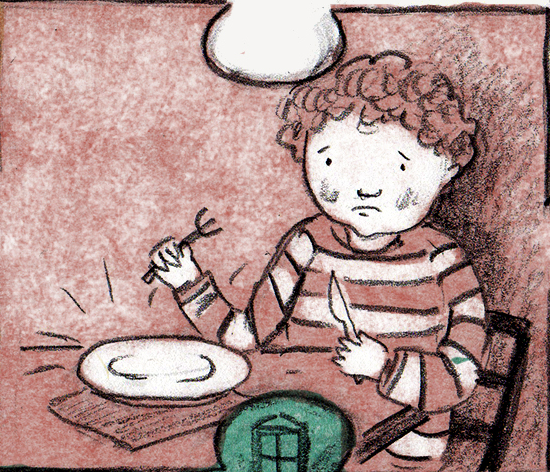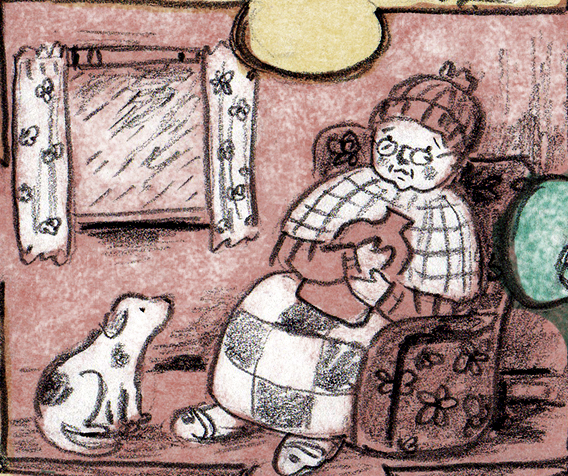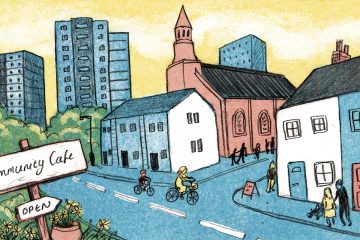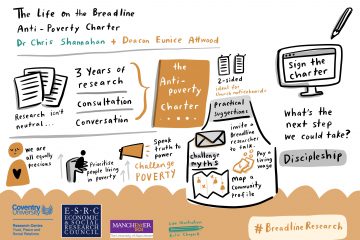This week’s Covid-19 guest blog post comes from Alison Briggs. Alison is currently a 2nd year PhD research student in the department of Geography in the School of Environment, Education and Development at the University of Manchester. Her research explores experiences of food insecurity in and through the relational spaces of family, friendships and other social relations. She writes:
Recently, vulnerability to food insecurity has become more prevalent in the UK during the global Coronavirus pandemic and subsequent lockdown measures, which has resulted in many people losing their jobs or experiencing income reductions of 25% or more. New data from the Food Foundation reveals that food insecurity levels in the UK are almost 250% higher than they were pre-Covid-19, and as foodbanks have reported significant increases in numbers of adults and children needing emergency food aid, it’s clear that Covid-19 has compounded already unacceptable levels of need.

In Stoke-on-Trent where my research exploring informal networks of support for those experiencing food insecurity is located, a local charity who operate an independent food pantry, reported a 104% increase in referrals in the first month of lockdown. In the last few months, in addition to continuing providing much needed support to local families in the form of delivering regular food parcels, this particular charity has expanded their support and teamed up with a local catering firm to deliver hot meals – 1391 to be precise. They are not the only charitable organisation operating in the area who have witnessed an exacerbation of food insecurity and poverty more generally, among local households that were already struggling to put food on the table.
The charity Period Power, was established in 2016 in response to an awareness that growing numbers of women and girls from low-income households across Stoke-on-Trent and Staffordshire could not afford sanitary products. Since then, they have supplied essential feminine hygiene items to foodbanks, women’s refuges and schools and colleges, purchased with donations from individuals as well as organisations such as Tesco and labour unions such as GMB and Unite. They have recently been successful in their application to the Charities Aid Foundation Coronavirus Emergency Fund, which will enable them to continue supporting their local community at the current level of need for another couple of months. However, there is growing recognition and concern surrounding the enduring expectation that charitable organisations like this one should be increasingly relied upon to plug the gaping holes in the social security safety net that have opened up as a consequence of a decade of austerity policies. During lockdown they have experienced increased demand for sanitary products and responded to calls for a much wider range of products (hand wash, household cleaning products, nappies, toiletries, toilet roll) from not only multiple local charities, but from growing numbers of families too.

Many low-income families across Stoke-on-Trent are reliant upon informal networks of family members and friends, as well as food banks to help them feed themselves and their children. However, emerging findings from my research highlight the importance of local, grassroots charitable organisations like those mentioned above in ameliorating the material and psychosocial effects of food insecurity. One of the aims of my research is to offer nuanced understanding of the ways in which food insecurity affects everyday lives and relationships, but Covid-19 has meant the suspension of all face-to-face research activities. In order to try to keep my research moving forward, I’ve been maintaining regular contact with all of my participants through text messaging. This has been invaluable for providing an insight into how families have been managing during this challenging time.
Managing on a restricted budget demands considerable amounts of time and energy, as well as care-work in the shape of food provisioning, particularly for mothers. Inevitably, this engenders both physical and emotional health costs for women in food insecure households. Covid-19 has presented even greater challenges for my participants. The following examples illustrate this. Maggie, aged 65 and living with her daughter and granddaughter, has experienced an intensification of anxiety and worry due to regular financial support from extended family members disappearing because they had been furloughed. The practice of maternal altruism involving regularly skipping meals to ensure children have enough to eat, has been well-documented in many studies with low-income households. The resulting health consequences for mothers include tiredness and a lack of energy, illustrated here by one mum:
“We are low on food. I’ve had one sandwich today and yesterday was one meal too. I’m tired. I keep telling myself this is making my patience better in the long-run and maybe the kids are being better behaved and I’m just extra stressed. I’ve been out anyway and had a bit of sunlight and I feel like that has boosted me a little […] but I still feel exhausted and I still want to be alone”
Marge, text message, April, 2020
Thank you Alison for our final guest blog post on Covid-19. The Breadline blog will be taking a break over the summer, returning in September with new resources, project news, and reflections.


